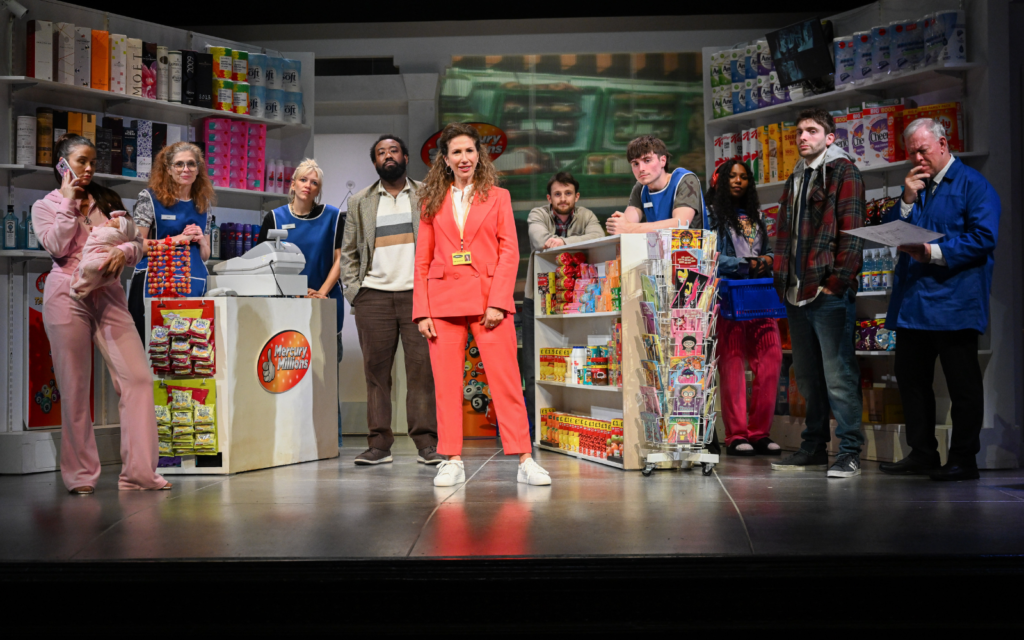Norwich Theatre Royal – until Saturday 4th May 2024
Reviewed by Boo Wakefield
3***
The Syndicate is the stage adaptation of the successful BBC show written by the late Kay Mellor. Her daughter, Gaynor Faye directs the play and performs the role of Kay, an over-enthusiastic representative from the lotto company. Gaynor Faye’s son, Oliver Anthony, plays the role of Jamie, the jack-the-lad shop worker, making this production a family affair.
Set in a small supermarket, the syndicate comprises of Bob (William Ilkley) the father figure who is the manager of the store, and his employees: Leanne (Rosa Coduri-Fulford) a struggling single mum whose previous life is catching up with her, the un-worldly and unlucky Denise (Samantha Giles), Stuart (Benedict Shaw) whose complicated home life has him running in circles and his brother Jamie. Due to financial burdens, Stuart’s partner Amy (Brooke Vincent) pushes him to find a solution to their problems, resulting in an attempt to steal from the shop with the help of Jamie, an act which goes terribly wrong.
There are several layers to the plot, with the overarching framework being a syndicate of five Yorkshire shop workers winning a lottery jackpot of £24 million. Within this framework each character has their own sub-plot and, despite the inevitable protestations that the win won’t change them, each is affected very differently. Perhaps with the exception of the shop manager Bob (played superbly by William Ilkley), the other four lead characters have flawed personalities and past behaviours which the play reveals to us and which the win exposes mercilessly. As a salutary tale of the potential pitfalls and unintended negative consequences of sudden significant wealth on those least equipped by life experience to cope with its affects, it’s a powerful play.
It tries to be a comedy but the humour is, at best, that of a middling sitcom, at worst a bit lame. Save for the briefest moment before Bob is violently assaulted during a robbery, the play is absent true theatricality, instead being structured in a series of deliberate set pieces and events, with the linkages between those set pieces not helping the flow: frequent darkened set changes; a rather prosaic set design; and short bursts of pop songs about money all tend to jar rather than help.
The play opens by emphasising that the characters are normal folk who live routine, not to say bland and mundane, lives. No problem with that of course, but the challenge is lifting them into compelling characters we can enjoy and feel we relate to. It’s no easy ambition given the start point, unfortunately it’s one that never quite comes off. If you want theatre which makes visible rather than repeats the visible then this is not for you; but if you enjoy a feelgood stage-based sitcom, then this is for you.

